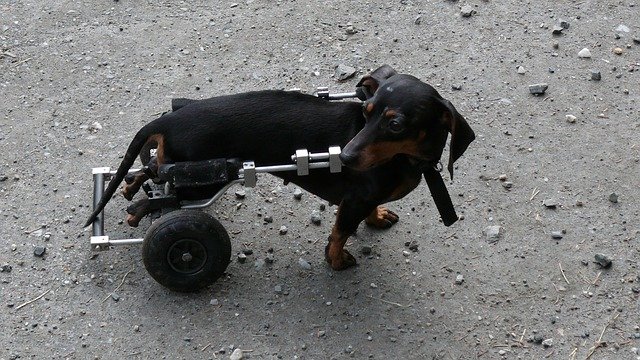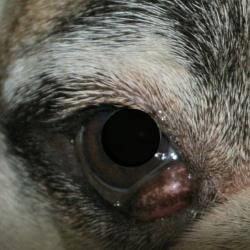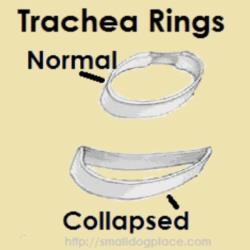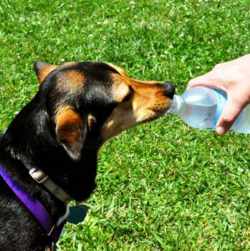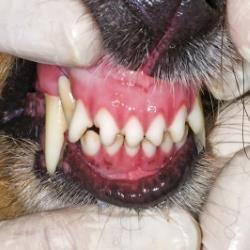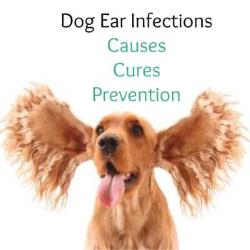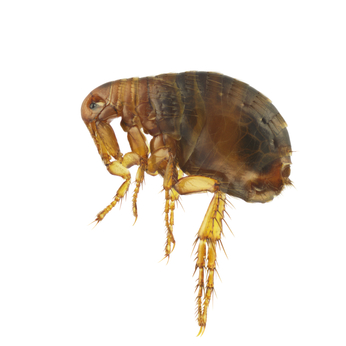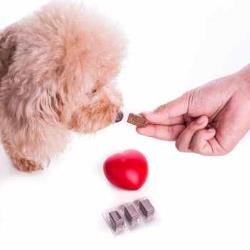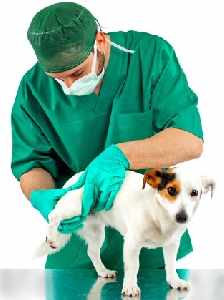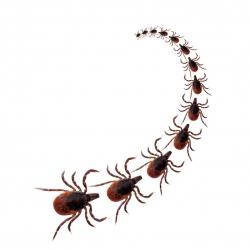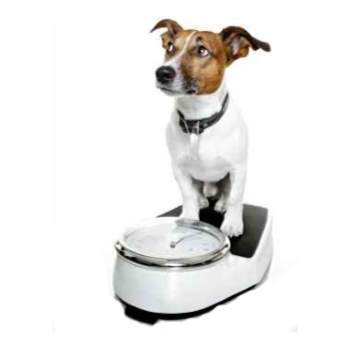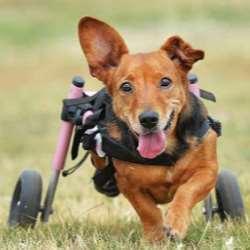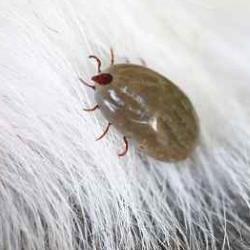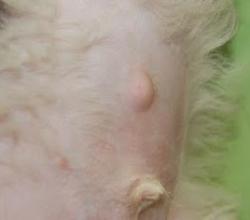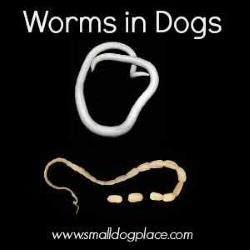- Small Dog Place Home
- Diseases
Small Dog Diseases
Small Dog Diseases by Janice Jones |Last Updated 03-22-2024
No one likes to see their small dog suffering and when it turns out that your dog has a serious illness, a rush of emotions may overwhelm you. Confusion, despair, worry, fear, and panic are just a few feelings that many people report.
The good news is that small dogs generally live longer than their larger cousins and most enjoy a relatively healthy life. Many of the diseases we see in older small breed dogs are due to their longevity. These same diseases such as cancer, heart disease, diabetes and kidney failure are also common in older people.
The bad news is that some problems result because of their small size and physical structure. There are also some diseases with a genetic component that are common in small breed dogs.
This page is a database of some of the most common ailments. Click on any link to go to an article about the description, causes, symptoms, treatment options. It is always easier to deal with small dog diseases if you have some understanding.
Dog Infectious Diseases
Keep in mind that all dogs are susceptible to
infectious diseases such as Parvo, all dogs can get worms, and all dogs can be
bothered by external parasites such as fleas and Ticks. In fact there are at least 6 if not more preventable dog diseases that no dog should ever get.
These issues are common in all dogs and can be prevented through yearly veterinary exams, vaccinations, wormings, and external parasite control.
Keep your small dog healthy with these simple pet health tips.
Can Your Dog Make You Sick?
Most small dog diseases can not be passed onto people, but there are some that you should know about, namely zoonotic diseases. Zoonotic diseases are caused by germs that can pass between people and animals. They can spread in two ways: Direct and Indirect Transmission.
Direct transmision means that there is direct contact with some form of bodily fluid such as saliva, blod, urine or feces. Indirect contact means that germs are spread by coming into contact with a contaminated surface such as a dog bed, food and water bowl, or soil and grass where germs remain hidden.
The Centers for Disease Control and Prevention (CDC) explains 3 ways that people or animals contaminate each other including water, food, and through a vector such as a flea, tick, or mosquito. Eating unsafe or contaminated food is a common way a person may get sick. Drinking or coming into contact with contaminated water is the other way a person or pet can get sick.
Here is a list of common zoonotic diseases that can pass from dogs to people. Note that these diseases can be passed by dogs of all sizes, not just small breed dogs.
- Rabies
- Giardia
- Ringworm
- Leptospirosis
- Lyme Disease
- Roundworms
- Hookworms
- Tapeworms
- Scabies
Small Dog Diseases & Health Problems
Some small dog health problems are more common in certain breeds and those breeds that are most popular tend to have genetic or inherited diseases show up more because of inbreeding and indiscriminate breeding practices.
As a general observation, many small breeds are prone to similar maladies so rather than describe breed specific problems, we have added this page as a table of contents of dog diseases. Go to your breed of choice page and scroll down to learn about their specific diseases.
As a whole, small dogs are healthy but they do have some concerns unique to their size.
Most Common Small Dog Diseases
Here are seven common illnesses that can affect your small dog, as well as some of the symptoms your pet could be exhibiting. Find out what the seven most common dog diseases are.
If you suspect that your pup has one of these diseases, take it to see a veterinarian as soon as possible so that it can receive proper treatment.
Small Dog Health Conditions
[A-B] [C-D] E-F] [G-H] [I-J] [K-L] [M-N] [O-P]
[Q-R] [S-T] [U-V] [W-X-Y-Z]
[A-B]
Puppy Bladder Infections
Puppy bladder infections may be more common than we think and especially in small breed puppies.
Brachycephalic Syndrome
Brachycephalic syndrome is not a disease, but a set of characteristics that can cause slight to life-threatening breathing problems.
[C-D]
Canine Atopic Dermatitis
One of the most frustrating issues about being a dog owner is when your dog suffers from some form of allergy.
Cherry Eye
Whether you believe that a cherry eye is a cosmetic problem or a serious medical condition, you have to agree that it is not the easiest sight to behold.
Collapsed
Trachea
Tracheal collapse is a progressive disease involving the windpipe most commonly seen in small breed dogs.
Constipation in Puppies:
Worried your puppy might be constipated?
Coughing in Puppies:
What's Causing it?
The sound of a young puppy gagging or coughing is hard to listen to especially if you are a new dog owner.
Dehydration in Dogs
If you’re asking this question it is probably because you have gone to work without remembering to top up your dog’s water bowl, or there's a biblical drought in your state!
Diarrhea in Puppies:
Not only is diarrhea in puppies a mess, it makes housebreaking nearly impossible.
[E-F]
Ear Infections
Red, stinky, dirt ears usually mean a dog ear infection is brewing and with it comes sensitivity, pain, and irritability.
Eyelid Conditions
Should we worry?
You know you have the responsibility to protect them as well as you can.
Dog Flea Treatments: Pros and Cons
With so many choices on the market, how does one choose the best methods for ridding your dog of these pesky insects.
[G-H]
Giardia
Giardia in dogs is another annoying parasite that can affect your dog’s health.
Heartworm Disease & Preventative
Heartworm Disease is a serious and possibly fatal condition caused by a parasite.
Hip Dysplasia
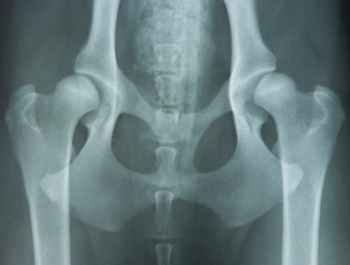 Hip Dysplasia in Small Breed Dogs
Hip Dysplasia in Small Breed DogsHip Dysplasia is a dreaded disease and the most common cause of rear leg lameness in dogs. Even though it is most common in large breed dogs, it can also occur in small dogs.
Dog Hip and Joint Pain
When it comes to hip and joint pain treatment for our beloved dogs, the first thing we want to know, "How can I make life easier and more comfortable for my dogs as they are heavily suffering?"
[I-J]
[K-L]
Legg Calve Perthes Disease
Legg Calve Perthes Disease affects mainly small breed dogs and seems to have a genetic component. Specific causes of the disease are not completely understood.
Luxating Patellas
Patellar luxation, luxating patella, dislocated kneecap, trick knee, and floating kneecaps are terms that refer to a condition where the kneecap can move in and out of position.
Lyme Disease in Dogs
Lyme disease in dogs is one of those devious health problems that can affect your dog, not to mention other species as well as Humans.
It is caused by a bacterium (Borrelia burgdorferi) carried by an infected tick, the black-legged tick, which is also known as the small deer tick.
Leptospirosis in Small Dogs
Dog owners may have heard about Leptospirosis for their small breeds, but don't know what it is or what it can do to their dog. It's a disease found across the United States and affects multiple organ systems in your dog, leading it to become a severe problem if not treated accordingly.
[M-N]
[O-P]
Obesity
Do you have an overweight dog? Perhaps you'd like to ignore the situation, but if your Small breed dog is overweight, you are cheating him out of the chance to live the best possible life.
Overweight Small breed dogs are at increased risk of developing painful conditions like osteoarthritis and life-threatening ones like respiratory, cardiovascular disease, Type 2 diabetes, high blood pressure and many forms of cancer.
6 Signs Your Shih Tzu is Overweight
Although it may appear that all Shih Tzu have the same anatomy, most people can't tell the difference between an average and overweight Shih Tzu.
Because Shih Tzu’ bodies are hidden under layers of hair, a visual inspection is not often adequate to ascertain their shape.
This is why owners need to examine their Shih Tzus physically.
Progressive Retinal Atrophy
Progressive Retinal Atrophy (PRA) occurs in many dog breeds and is a non-painful genetic disease of the retina in the eye that leads to blindness.
PRA is not one disease, but a group of them that include dysplastic (abnormal development), dystrophic (loss of cells) or degenerative disease (deterioration) of the retinal cells.
[Q-R]
Reverse Sneeze
A reverse sneeze is a common occurrence in some dogs and can sound menacing and even give the impression that the dog is choking or worse.
Owners unaware of the problem can rush their dog off to the emergency veterinarian thinking the dog is about to die. But relax, it sounds worse than it is.
[S-T]
Seizures in Dogs
A general seizure involves a loss of consciousness accompanied by involuntary activities such as muscle contractions, paddling with the limbs, trembling and facial twitching. During a seizure, dogs frequently salivate, urinate and defecate. The pupils of the eyes are usually dilated.
A partial seizure involves only some of these changes and does not necessarily include loss of consciousness.
Sensitive Stomachs
As a dog owner, we don’t have to tell you that your four-legged friend is an integral part of your family. Like any other family member you love, you don’t want to see them feeling sick! Unfortunately, some dogs have more sensitive stomachs than others, and some are more prone to dealing with stomach issues.
Why is My Puppy Sneezing?
One common symptom that alarms new owners of puppies is sneezing. It is particularly the case if the puppy appears to be repeatedly sneezing or showing other symptoms of illness.
Sneezing is not always a sign that your puppy has a serious illness. Puppies sneeze for many of the same reasons that humans do. An occasional sneeze by you or I is no big deal. That same is true for puppies.
As dutiful pet owners, it is a good idea to learn more about our pets.
Spinal Injuries in Small Dogs
Many small breed dogs are prone to spinal injuries including the Dachshund, Corgis, Shih Tzu, and others. It can be a life altering experience but there are many new solutions to help your dog live a long, happy life even with a spinal injury.
Treatments can range from acupuncture to physical therapy, to natural remedies, even getting a wheelchair for your dog.
Surgery: 7 Conditions that Put Your Dog at Risk
Purebred canines are often afflicted with more health problems than mixed breed dogs. As a pet owner, it’s best to take care of your pet’s health to spare yourself from the stress of medical emergencies, not to mention the cost of small dog surgery.
This way, you can take preventive measures to ensure your furry pal stays healthy and strong.
This article lists common health conditions of small dog breeds that may need surgical intervention.
Dog Ticks: Should You Be Concerned?
They look like insects, but Ticks are real arachnids, the same family as spiders and scorpions, meaning they have 8 legs instead of the normal 6 legs found in insects.
They do damage to their host by attaching themselves, sucking blood and transmitting disease. The main issue with dog ticks is not the skin problems they cause, but the disease they can transmit. They can causes severe problems not only for your dog but for you too.
[U-V]
Umbilical Hernia
An umbilical hernia is the most common type of hernia found in the dogs. This is a condition where there is a small opening in the abdomen wall area of the umbilicus allowing the possibility of contents from the abdomen to protrude.
This area can be found on the dog’s stomach at the location where the umbilical cord was attached. It appears as a little soft lump or swelling.
Vomiting: Puppies Throwing Up Undigested Foood
Dogs Throwing Up Undigested Food
von Willebrand's Disease
von Willebrand's disease is one of several blood clotting diseases that are found in many different dog breeds. It affects both males and female dogs, alike.
While it can be a serious, life threatening problem, most dogs live most of their lives symptom free. Owners have no idea that there is a problem until something happens such as a traumatic event that involves blood loss.
Worms in Dogs: Are You at Risk For Catching Your Dog's Worms?
Discussing those Common Worms in Dogs and single celled organisms that live in dogs does not make for polite dinner conversation.
However, if left unchecked, these little creatures can make your dog and even you very ill and could be potentially deadly.
There are several very common worms seen in dogs. Learn about each, the symptoms in your dog and how to treat them.
Yeast Infections in Dogs
This article is accurate and true to the best of the author’s knowledge. No advice on this website is meant to substitute for a diagnosis, treatment or advice from a veterinarian. Dogs showing symptoms of distress or illness should be seen by a veterinarian immediately.
About Janice (author and voice behind this site)
Having lived with dogs and cats most of her life, Janice served as a veterinary technician for ten years in Maryland and twelve years as a Shih Tzu dog breeder in Ohio.
Her education includes undergraduate degrees in Psychology with a minor in biology, Early Childhood Education, and Nursing, and a master's in Mental Health Counseling.
She is a lifelong learner, a dog lover, and passionate about the welfare of animals. Her favorite breed for over 50 years has been the Shih Tzu, but she has also lived with Poodles, Maltese, Yorkshire Terriers, Beagles, English Bulldogs, Carin Terriers, and a Cocker Spaniel.
When not writing, reading, and researching dog-related topics, she likes to spend time with her eight Shih Tzu dogs, husband, and family, as well as knitting and crocheting. She is also the voice behind Miracle Shih Tzu and Smart-Knit-Crocheting
Does This Article Deserve Your Thumbs Up?
We always appreciate your support and encouragement. Your thumbs up means so much to us. Please like this article.
If you find this page or any page on Small Dog Place Helpful, or useful in anyway, I'd love it if you would click the small heart found on the bottom right of each page.
You can also share or bookmark this page -- just click on the:

Free Monthly Newsletter
Sign Up for Our Free Newsletter and get our Free Gift to You.
my E-book, The Top 10 Mistakes People Make When Choosing a Dog (and how to avoid them)
